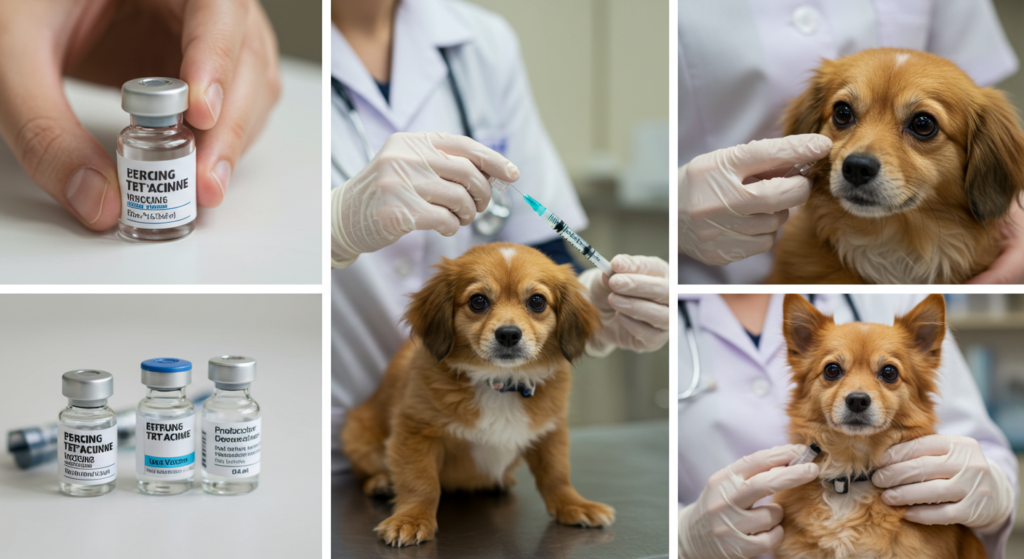Table of Contents
- Introduction
- Myth #1: Vaccines Are More Dangerous Than the Diseases They Protect Against
- Myth #2: Vaccines Contain Dangerous Ingredients
- Myth #3: Vaccines Can Give Your Pet Autism
- Myth #4: Veterinarians Give Animals Too Many Boosters
- Myth #5: If You Need One Vaccine, You Need Them All
- Myth #6: Your Pet Can’t Get Kennel Cough If They’ve Had the Bordetella Vaccine
- Myth #7: Shots Are a Big Moneymaker for Vets
- Conclusion
- FAQs
Introduction
As vaccination rates among humans decline, a troubling trend is emerging among pet owners. Influenced by misinformation, many are opting to skip vaccines for their pets, leaving them vulnerable to serious illnesses. According to a recent survey, about 60% of veterinarians report an increase in pet owners refusing core vaccinations, such as rabies shots, since the COVID-19 pandemic. This skepticism, often rooted in concerns about human vaccines, is now impacting pet health.
Research from Texas A&M University highlights a strong link between human and pet vaccine hesitancy. Approximately 11% of dog owners and 12% of cat owners express concerns about the safety, efficacy, or necessity of pet vaccines. While most pets still receive their shots, significant gaps remain—ranging from 6% of dogs missing rabies vaccines to 33% of cats unprotected against feline herpesvirus-1.
To address these concerns, we’ve consulted veterinarians, psychologists, and immunologists to debunk the most common myths about pet vaccines.

Myth #1: Vaccines Are More Dangerous Than the Diseases They Protect Against
Experts say: Vaccines are highly effective, often reducing disease prevalence to extremely low levels. Dr. George Moore, a professor emeritus at Purdue University College of Veterinary Medicine, explains that adverse reactions to vaccines are rare, with only 0.194% of dogs and 0.52% of cats experiencing mild side effects like fatigue or soreness.
In contrast, diseases like rabies, parvovirus, and feline herpesvirus-1 can be fatal. Rabies, for instance, is almost always lethal once symptoms appear, making vaccination a legal requirement in most states.
Myth #2: Vaccines Contain Dangerous Ingredients
Experts say: Concerns about ingredients like thimerosal, a mercury-based preservative, are unfounded. The CDC confirms that trace amounts in vaccines pose no harm. Dr. Moore emphasizes that vaccine technology has advanced significantly over the past four decades, ensuring safety and efficacy.
Pet vaccines are rigorously regulated by the U.S. Department of Agriculture, and every licensed vaccine comes with a package insert detailing its contents. Ask your vet to review this information with you.
Myth #3: Vaccines Can Give Your Pet Autism
Experts say: This myth stems from the debunked theory linking vaccines to autism in humans. However, pets do not develop autism. Dr. Lori Kogan, a psychologist and professor at Colorado State University, clarifies that this is not a valid concern for pet owners.
Myth #4: Veterinarians Give Animals Too Many Boosters
Experts say: Vaccination schedules are based on research to ensure immunity lasts. Many boosters are administered every three years to maintain protection. Puppies and kittens require multiple vaccines in their first 16 weeks to build immunity as maternal antibodies wane.
For pets with longer-lasting immunity, antibody blood tests (titer tests) can determine if a booster is necessary.
Myth #5: If You Need One Vaccine, You Need Them All
Experts say: Not all vaccines are created equal. Core vaccines, like those for rabies and distemper, are essential for all pets. Non-core vaccines, such as those for Lyme disease or kennel cough, depend on your pet’s lifestyle and risk factors.
Dr. Ambika Vaid, an integrative veterinarian, advises tailoring vaccinations to your pet’s specific needs. For example, a dog that frequents dog parks may benefit from the bordetella vaccine, while a homebound senior dog may not.
Myth #6: Your Pet Can’t Get Kennel Cough If They’ve Had the Bordetella Vaccine
Experts say: While the bordetella vaccine protects against Bordetella bronchiseptica, the most common cause of kennel cough, other pathogens can still cause the condition. Dr. Vaid explains that kennel cough is a broad term encompassing various viral and bacterial infections.
Despite this, the vaccine is still recommended for dogs exposed to high-risk environments like grooming facilities or dog parks.
Myth #7: Shots Are a Big Moneymaker for Vets
Experts say: Vaccines are not a significant revenue source for veterinarians. Dr. S. Mark Tompkins, director of the Center for Vaccines and Immunology at the University of Georgia, notes that treating sick animals is far more costly than preventing disease through vaccination.
Vets prioritize pet health over profits, and vaccines are a key tool in keeping animals healthy.
Conclusion
Vaccinating your pet is a crucial step in ensuring their health and longevity. Misinformation about vaccines can lead to unnecessary risks, leaving pets vulnerable to preventable diseases. By understanding the facts and consulting your veterinarian, you can make informed decisions about your pet’s vaccination schedule.

FAQs
1. Are pet vaccines safe?
Yes, pet vaccines are rigorously tested and regulated to ensure safety and efficacy. Adverse reactions are rare and typically mild.
2. How often does my pet need boosters?
Most core vaccines require boosters every three years, but this can vary based on your pet’s health and lifestyle.
3. Can indoor pets skip vaccines?
Even indoor pets need core vaccines, as they can still be exposed to diseases through contaminated environments or other animals.
4. What should I do if my pet has a reaction to a vaccine?
Contact your veterinarian immediately. Most reactions are mild, but it’s important to monitor your pet and seek professional advice.
